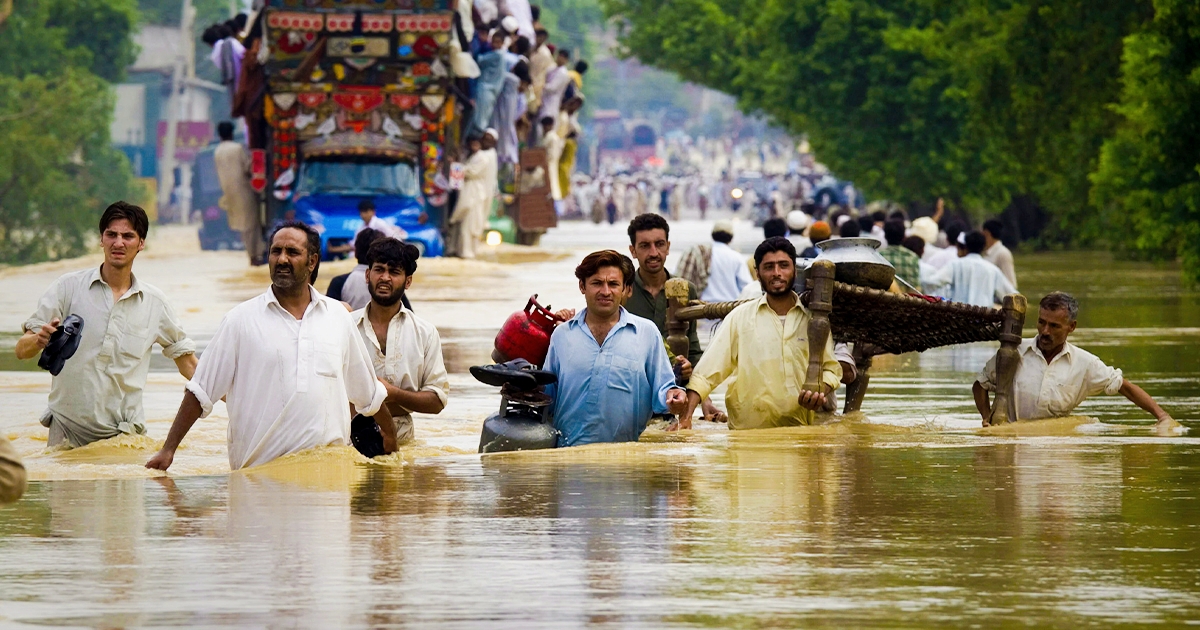Catastrophic Floods in Pakistan: Over 6 Million Affected and 928 Dead
September 10, 2025111 ViewsRead Time: 2 minutes

Font Size:
16
The Pakistani authorities are in a crucial race against time to save the lives of at least 1.6 million people facing the danger of massive floods, as the water levels in rivers continue to rise, sweeping entire villages, according to official sources and United Nations agencies announced today, Wednesday.
According to the National Disaster Management Authority of Pakistan, the floods and landslides caused by heavy monsoon rains and glacial lake outburst floods since June have resulted in the death of 928 people, in one of the worst natural disasters the country has faced in recent years.
The United Nations disaster management agency reported that nearly 6 million people have been affected by this disaster, especially in the mountainous northern regions, northwest of the country, reaching the central provinces.
For its part, the United Nations Office for the Coordination of Humanitarian Affairs (OCHA) announced that the situation is worsening after floodwaters reached the Sindh province in southern Pakistan, threatening the lives of more than 1.6 million people who may need to be urgently evacuated or rescued.
In a warning statement, Murad Ali Shah, the Chief Minister of Sindh province, said:
"So far, we have managed to evacuate about 200,000 people from areas near riverbanks, but we are preparing to rescue more in the coming days, as the situation remains dangerous and volatile."
Local authorities, along with international relief agencies, are working around the clock to deliver aid and emergency supplies to those affected, but the scale of the disaster and logistical challenges in the affected areas significantly hinder relief efforts.
Environmental experts warn that climate change and rapid changes in weather patterns contribute to the recurrence of these disasters at a more destructive pace, calling on the international community to provide urgent support to Pakistan to address the crisis and avoid a larger humanitarian disaster.